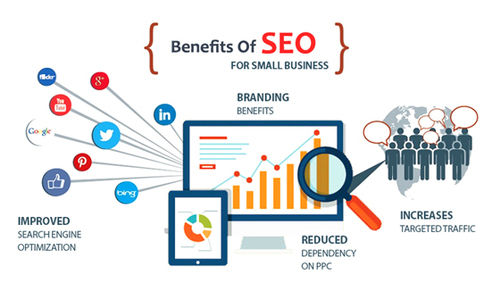SEO vs PPC: Which one wins the ROI game?
Discover the ultimate showdown between SEO and PPC in our latest article, 'SEO vs PPC: Which One Wins the ROI Game?' We delve into how each strategy impacts your return on investment, helping you choose the best approach to maximize your marketing efforts and drive substantial growth.

When it comes to maximizing return on investment (ROI) in digital marketing, the debate between SEO (Search Engine Optimization) and PPC (Pay-Per-Click) advertising often takes center stage. Both strategies offer distinct advantages and play crucial roles in driving traffic and increasing conversions. However, understanding the nuances of each can help businesses make more informed decisions on which approach aligns best with their goals.
Understanding SEO and Its Impact on ROI
SEO focuses on optimizing a website to rank higher in organic search engine results. This involves improving various on-page and off-page factors, such as keyword usage, website structure, content quality, and backlinks. The primary goal of SEO is to increase the visibility of a website in search engines like Google, thereby driving more organic traffic.
Cost-Effectiveness: SEO is often considered a cost-effective strategy in the long run. While initial investments in SEO may include hiring experts, content creation, and technical improvements, the ongoing costs are relatively low compared to PPC. Once a website achieves high rankings, it can continue to attract organic traffic without recurring expenses per click.
Long-Term Benefits: The effects of SEO tend to be long-lasting. High-ranking positions in search results can maintain their visibility for an extended period, resulting in sustained traffic and leads. This longevity makes SEO an appealing choice for businesses looking to build a strong online presence over time.
Credibility and Trust: Users often perceive organic search results as more credible and trustworthy than paid ads. Appearing in top organic positions can enhance a brand's reputation and increase consumer trust. High-quality content and a well-optimized site contribute to this perception, reinforcing the value of SEO in building brand authority.
Exploring PPC and Its ROI Advantages
PPC advertising, on the other hand, involves paying for ad placements on search engines or other platforms. Advertisers bid on keywords, and their ads are displayed based on the bid amount and relevance to the search query. Unlike SEO, PPC provides immediate visibility and control over the placement of ads.
Immediate Results: One of the most significant advantages of PPC is the ability to see results almost immediately. Once a PPC campaign is launched, ads can start appearing in search results or other platforms right away, driving traffic to the website from day one. This immediacy can be particularly valuable for time-sensitive promotions or new product launches.
Targeted Advertising: PPC allows for highly targeted advertising, enabling businesses to reach specific demographics, locations, and interests. Advanced targeting options ensure that ads are shown to the most relevant audience, potentially increasing the chances of conversion. This precision can lead to a higher ROI by focusing the budget on users who are more likely to engage.
Budget Control: PPC campaigns offer detailed budget control, allowing businesses to set daily or monthly limits. Advertisers can adjust bids and budgets based on performance, ensuring that spending aligns with ROI goals. This flexibility helps manage costs and optimize ad spend for better results.
Comparing SEO and PPC ROI
Cost Considerations: When comparing ROI, it’s essential to consider both the costs associated with SEO and PPC. SEO typically involves ongoing investments in content creation, technical improvements, and link-building efforts. While these costs can be high initially, the long-term benefits and lower ongoing expenses can make SEO a cost-effective choice.
PPC, on the other hand, requires continuous spending on ads. The cost per click can vary significantly depending on the competition for keywords and the industry. While PPC provides immediate visibility, the ROI can fluctuate based on the effectiveness of the ads and the overall budget.
Traffic and Conversion Rates: Both SEO and PPC can drive significant traffic to a website, but the quality and conversion rates of this traffic can differ. Organic traffic from SEO is often seen as more engaged and likely to convert, as users actively search for relevant information. PPC traffic, while targeted, may result in higher bounce rates if ads are not well-aligned with user intent.
Scalability and Flexibility: SEO efforts can take time to show results, and scaling an SEO strategy may involve additional investments in content and technical optimizations. PPC offers more flexibility and scalability, allowing businesses to quickly adjust campaigns based on performance and budget. This adaptability can be advantageous for businesses looking to respond to market changes or test new strategies.
Integrating SEO and PPC for Optimal ROI
While SEO and PPC each have their strengths, integrating both strategies can provide a comprehensive approach to maximizing ROI. Combining SEO and PPC efforts allows businesses to leverage the benefits of both channels, enhancing their overall digital marketing strategy.
Balanced Approach: Using SEO and PPC together can create a balanced approach to online visibility. While SEO works to build long-term organic traffic, PPC can drive immediate traffic and support time-sensitive campaigns. This synergy helps cover a broader range of search queries and audience segments.
Data-Driven Insights: PPC campaigns can provide valuable data and insights into keyword performance, audience behavior, and conversion rates. This data can inform SEO strategies, helping businesses optimize their content and improve organic rankings. Conversely, insights from SEO performance can help refine PPC targeting and ad messaging.
Complementary Strategies: SEO and PPC can complement each other by targeting different stages of the customer journey. SEO can capture users in the research phase who are looking for information, while PPC can target users who are closer to making a purchase decision. This complementary approach ensures that businesses reach potential customers at various touchpoints.
What's Your Reaction?














